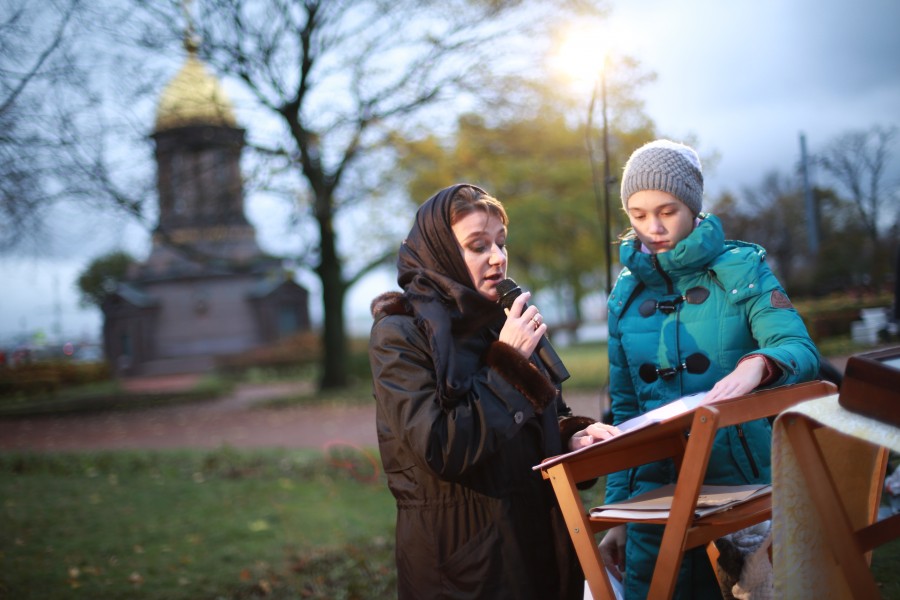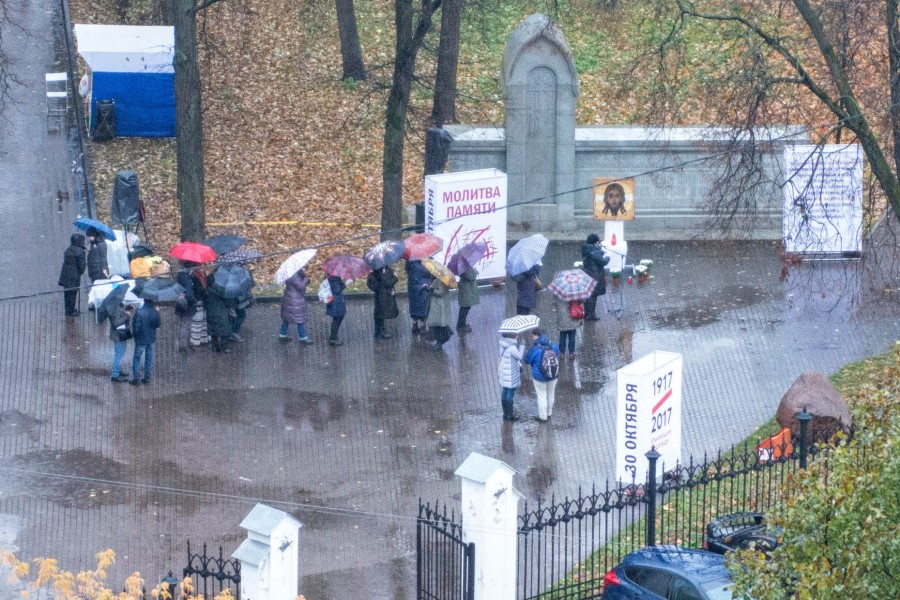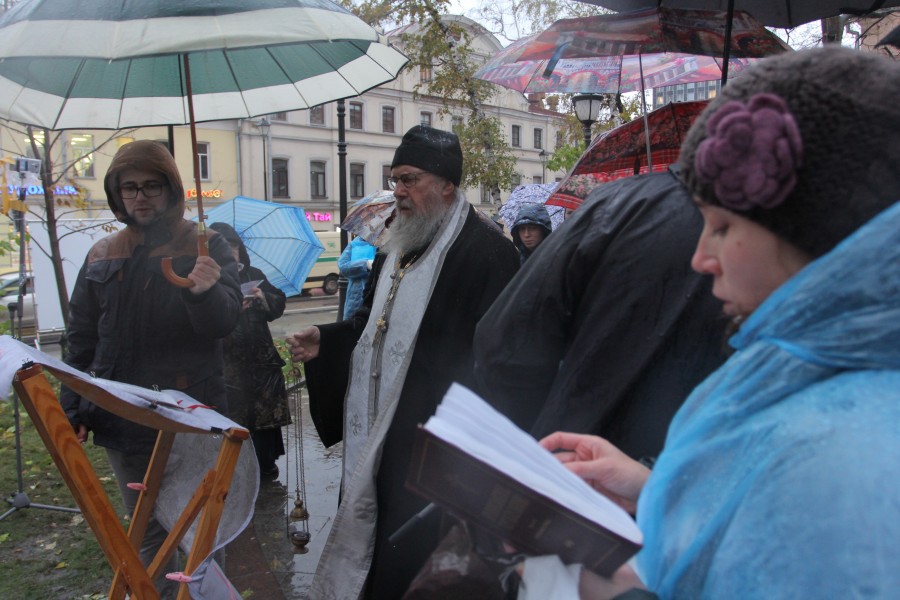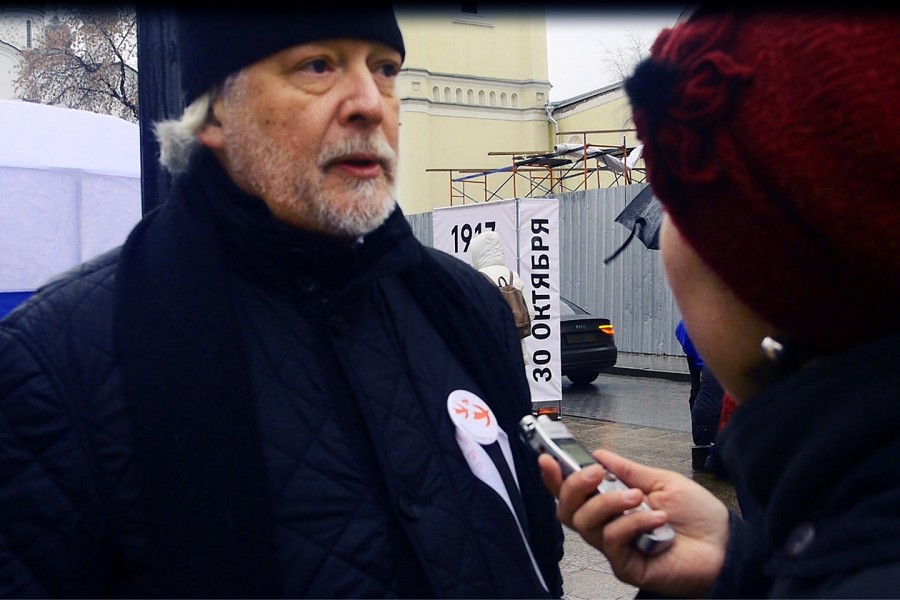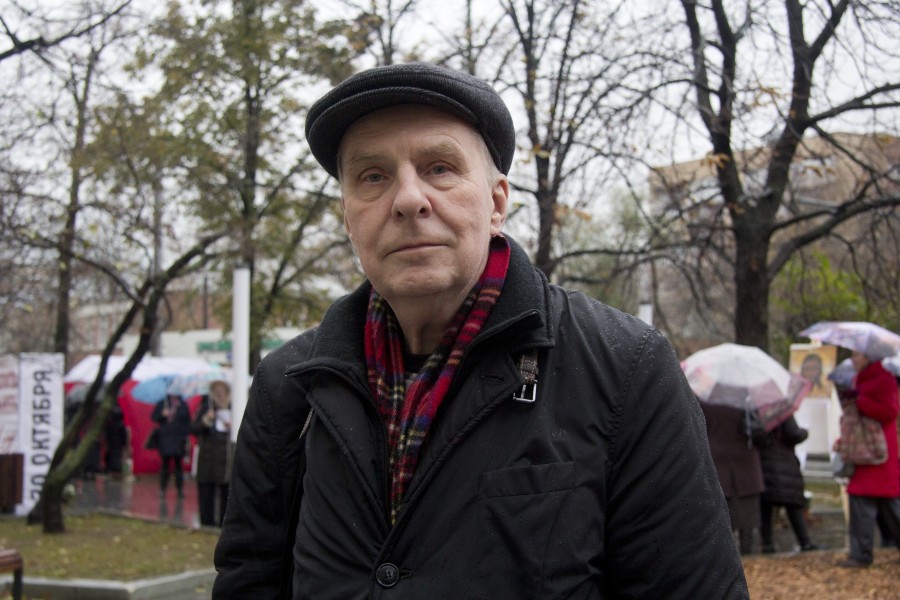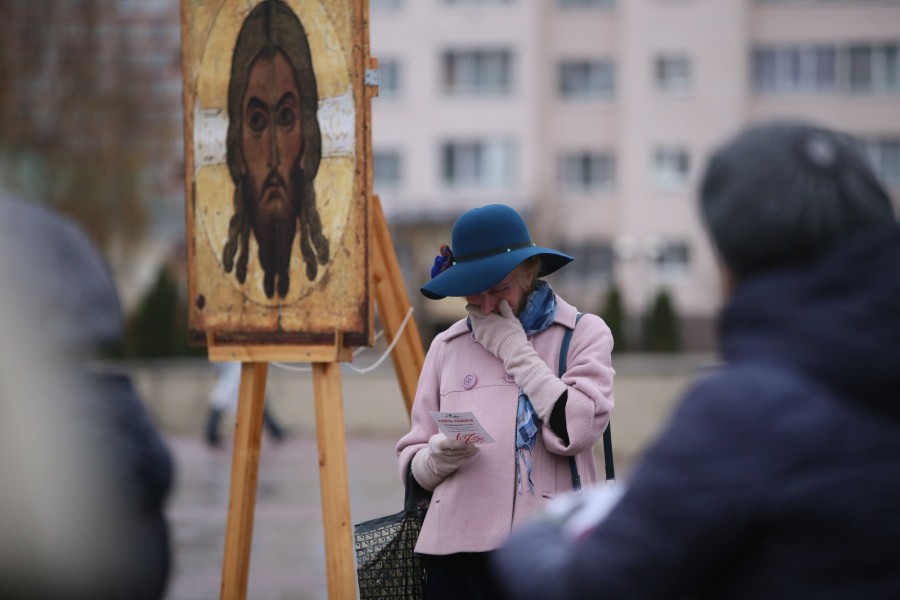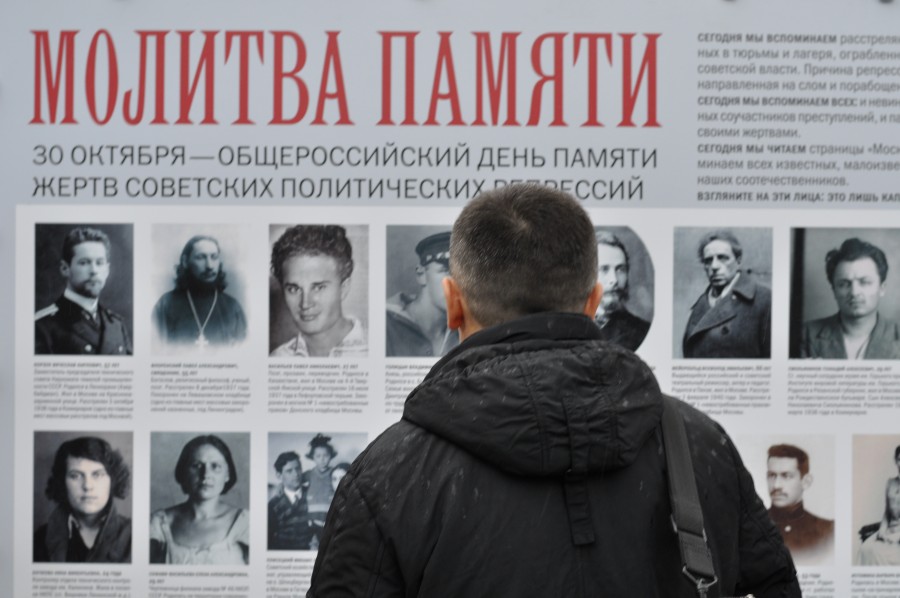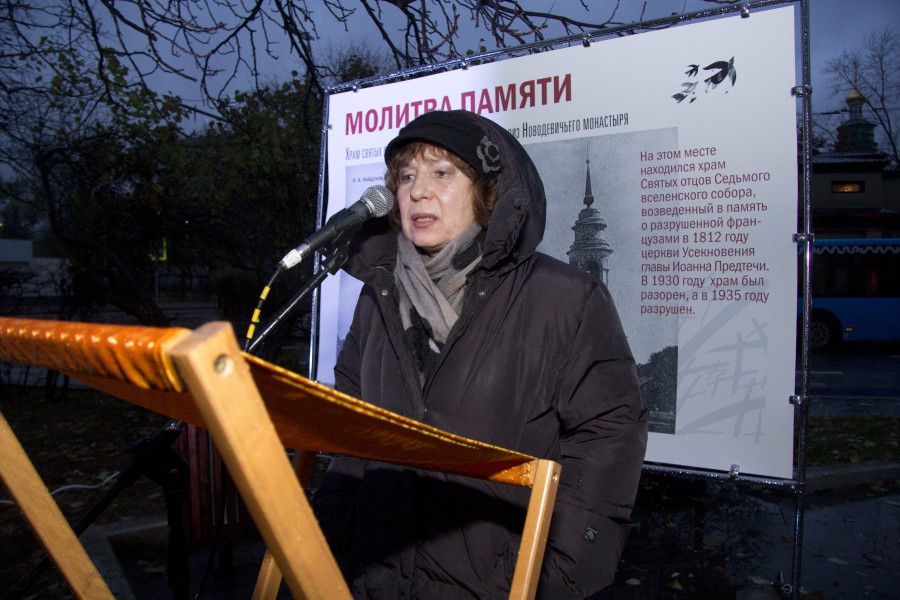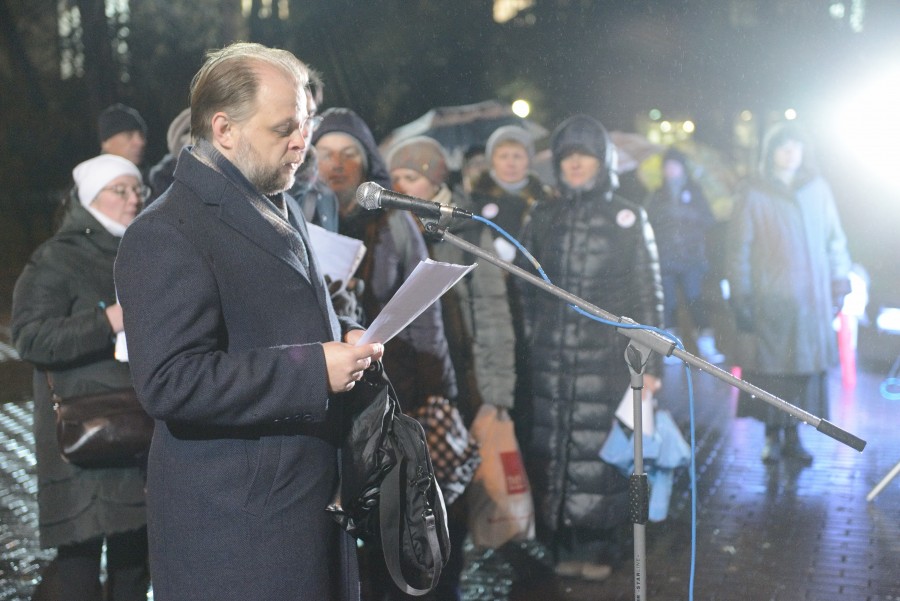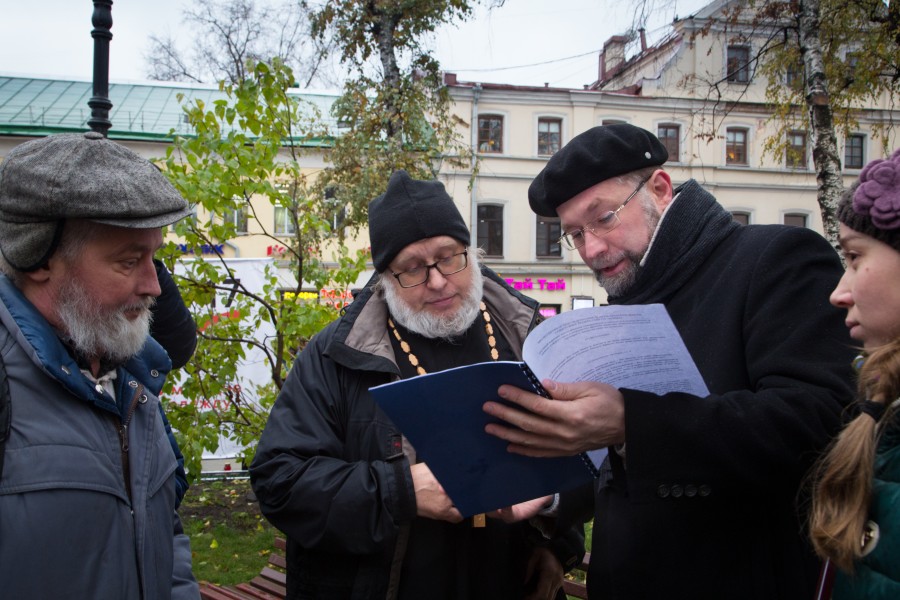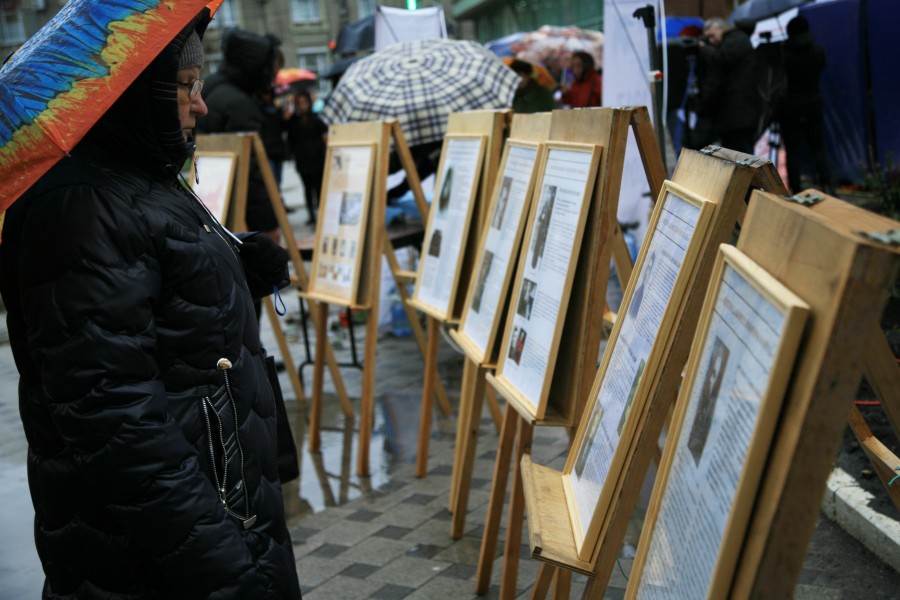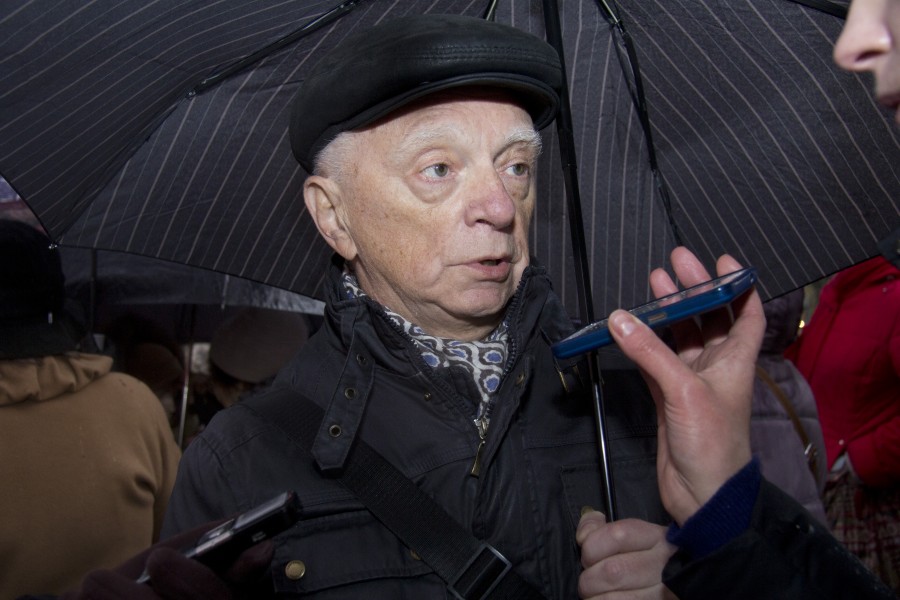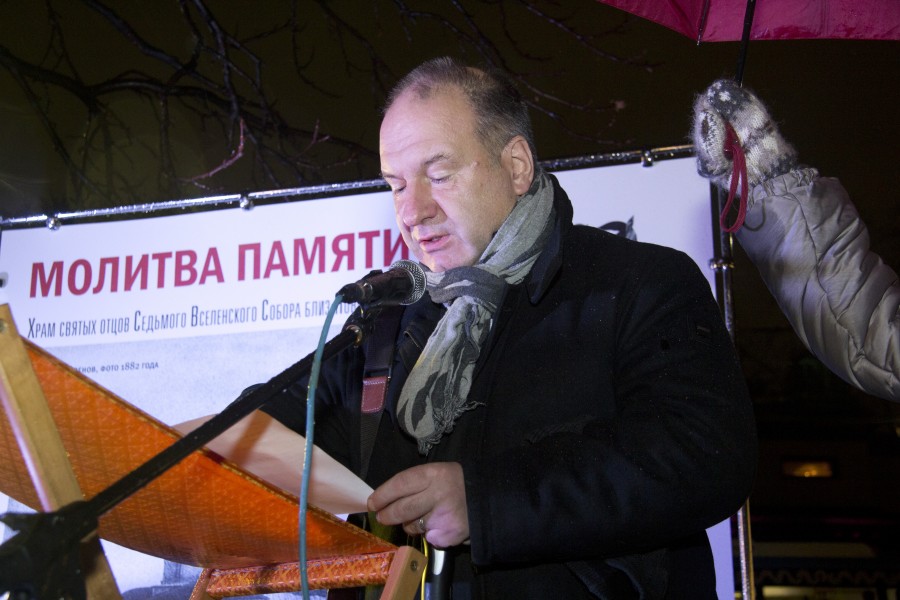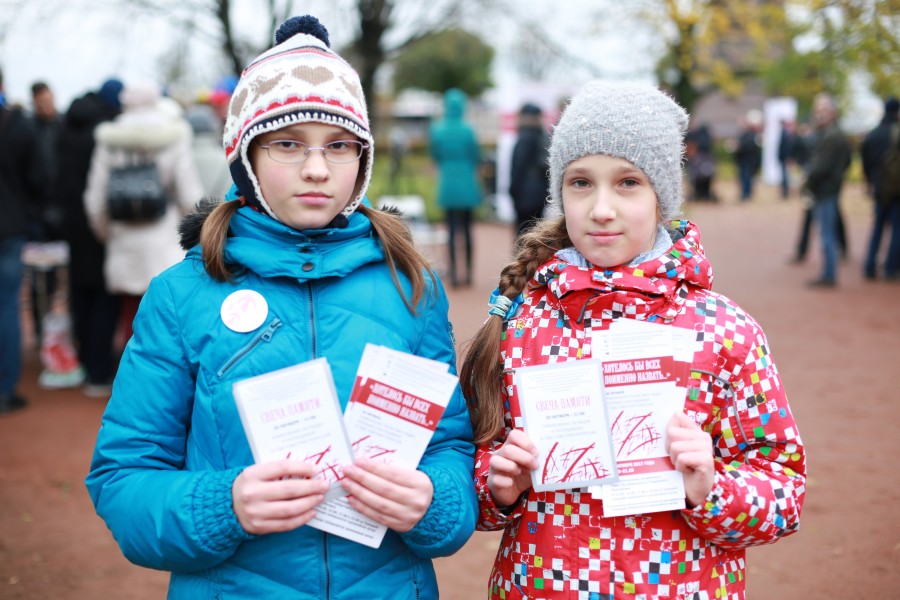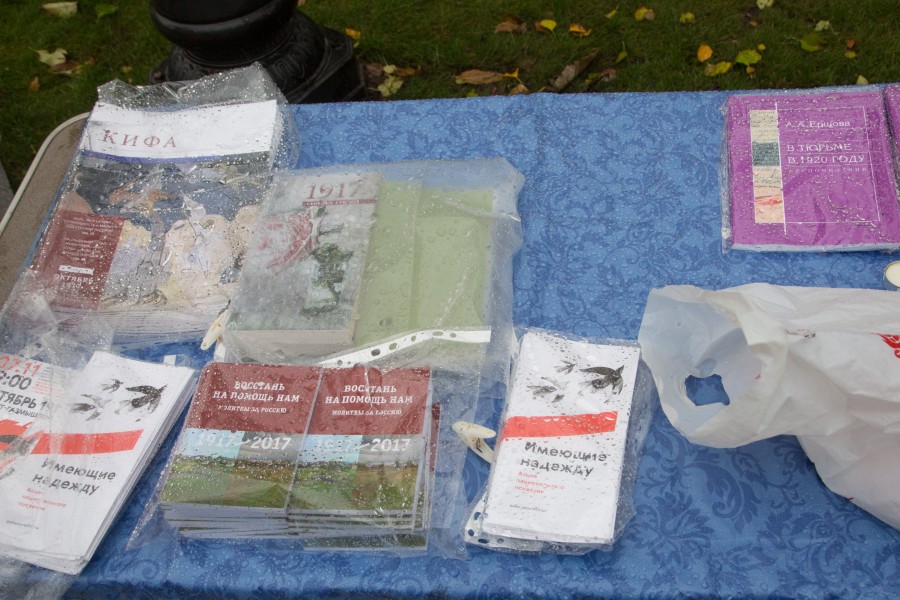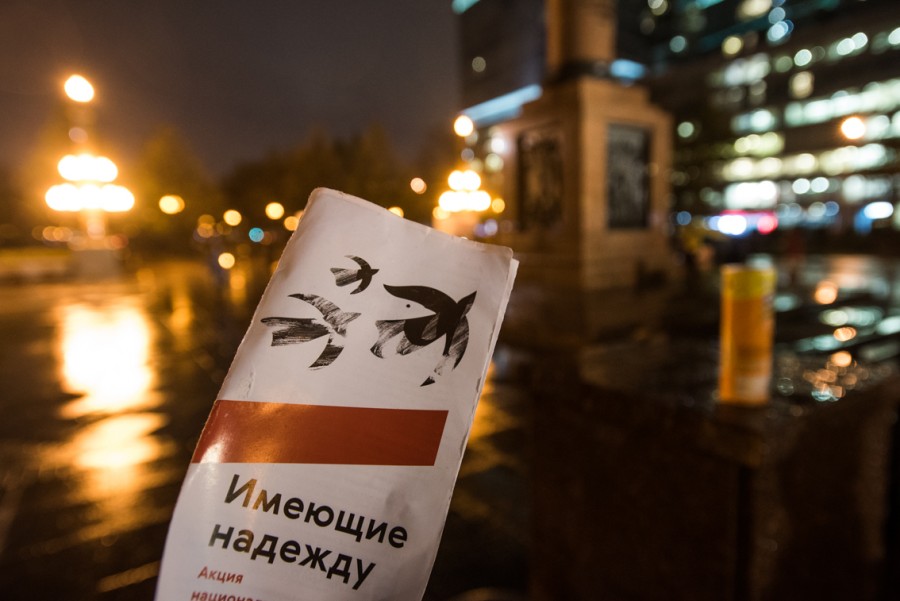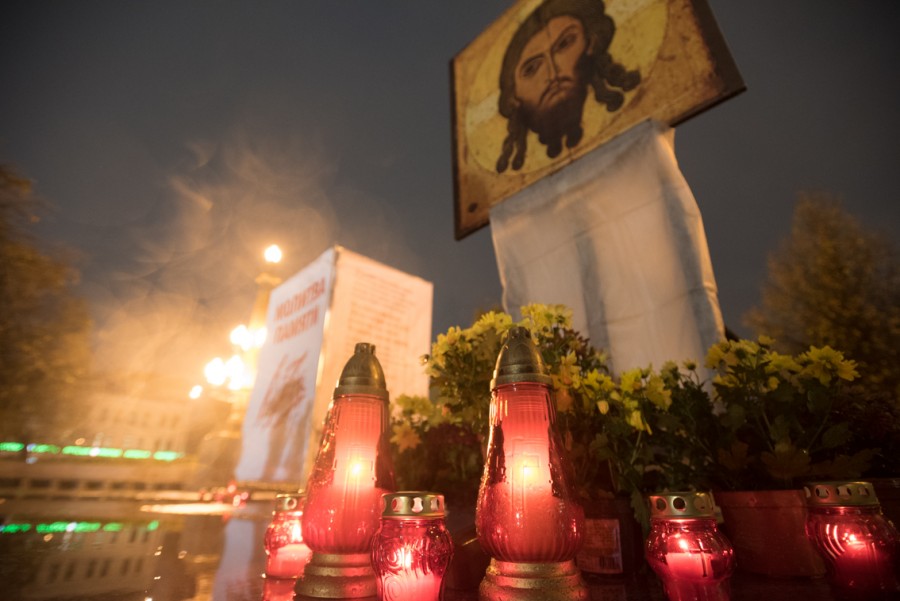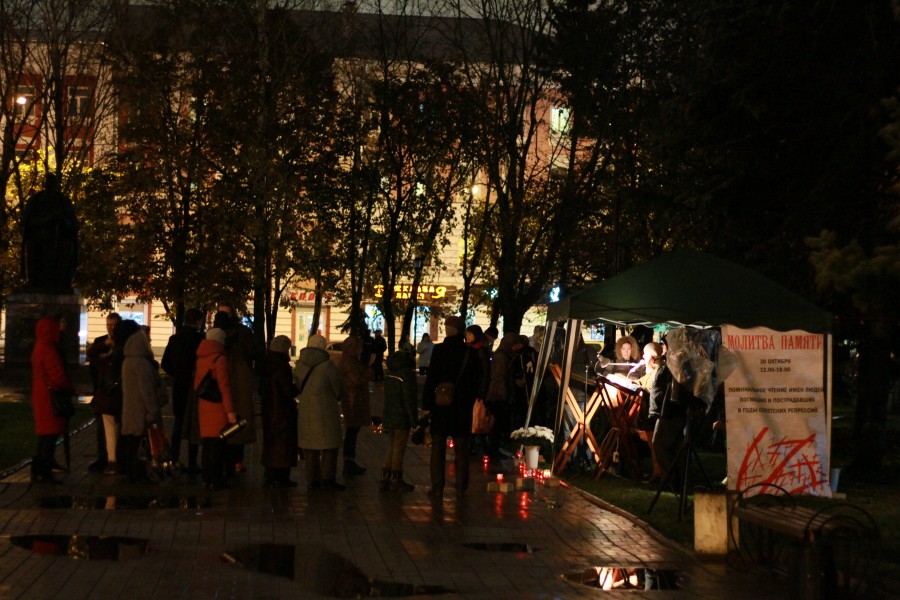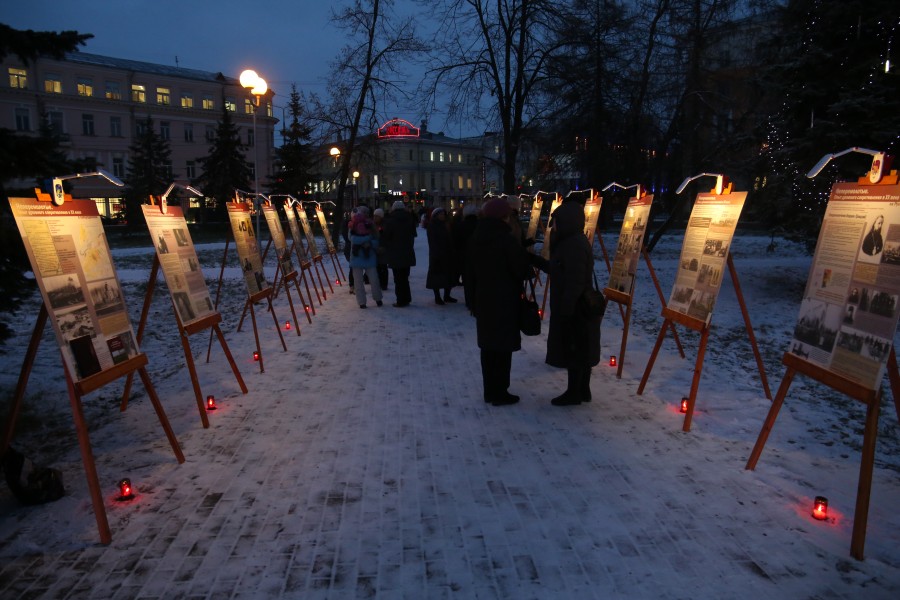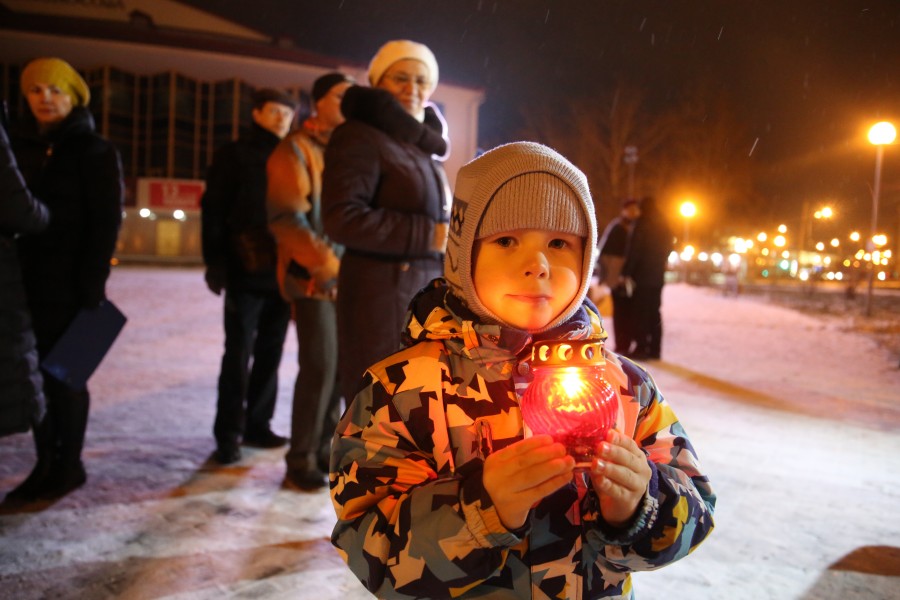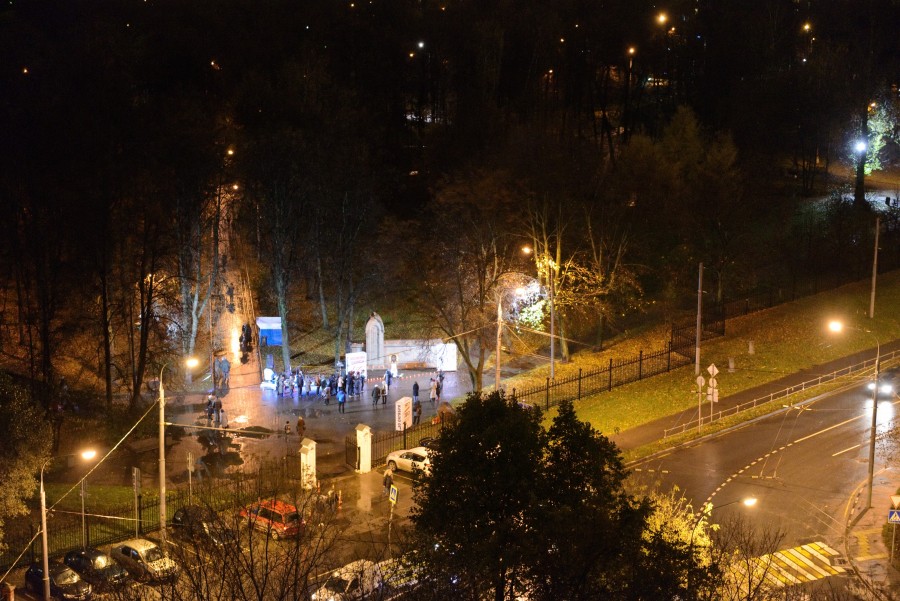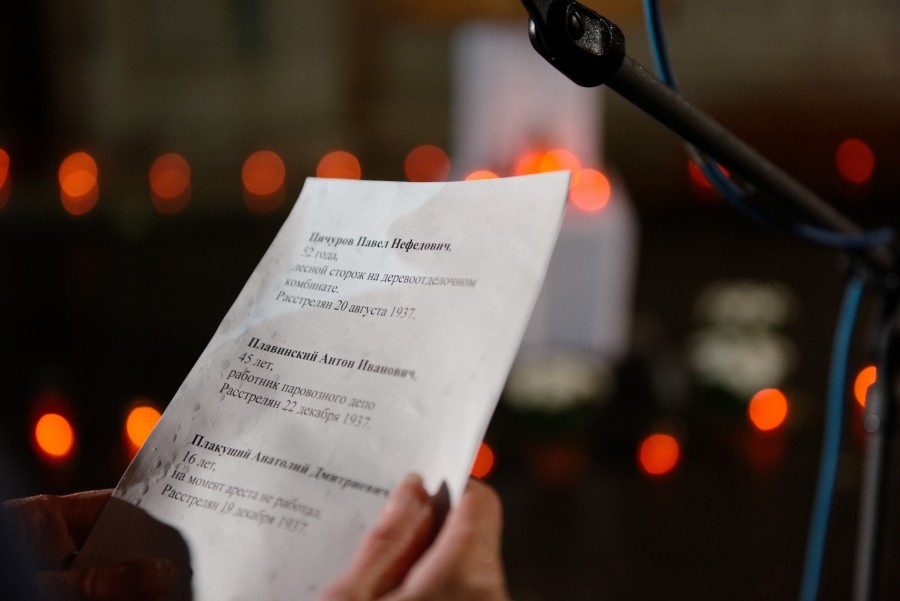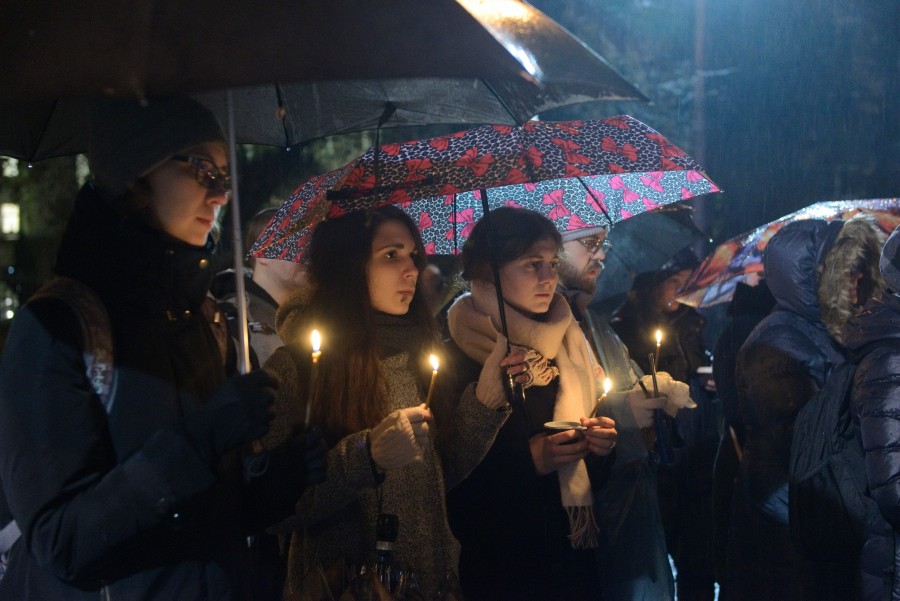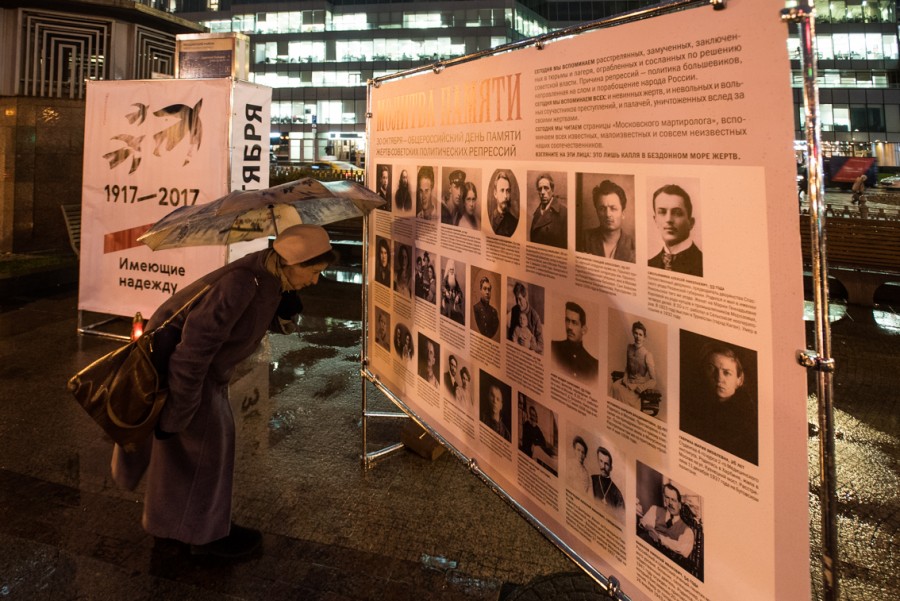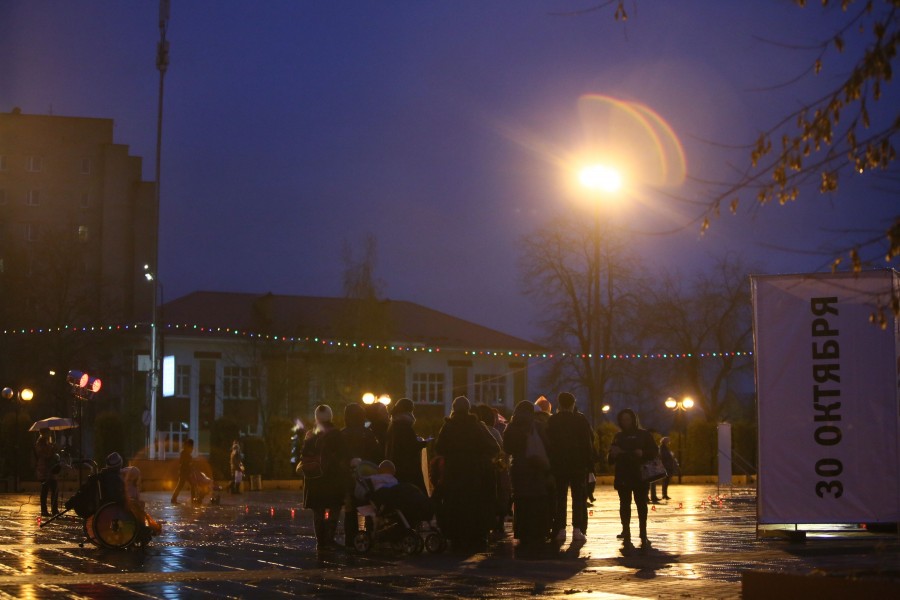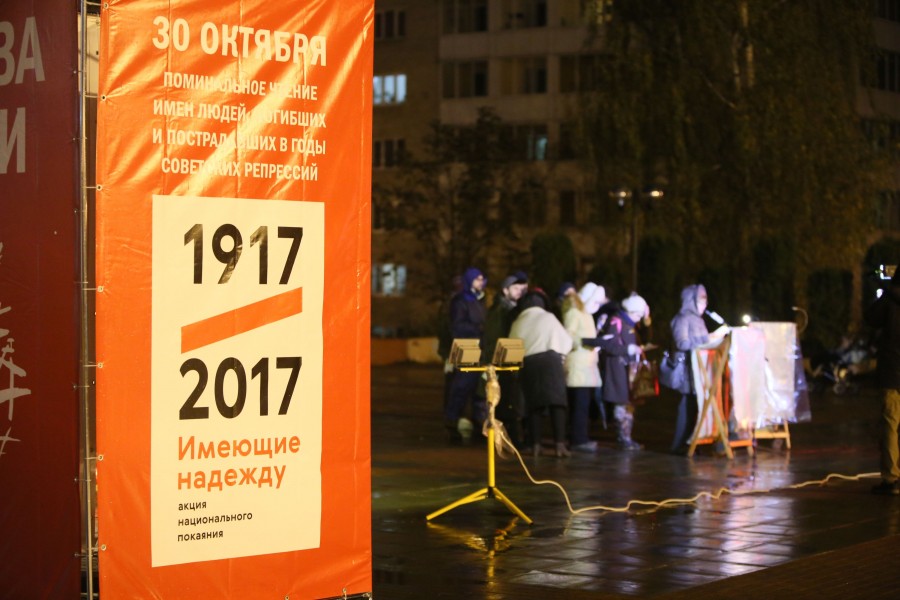Day of the True Russian Patriots
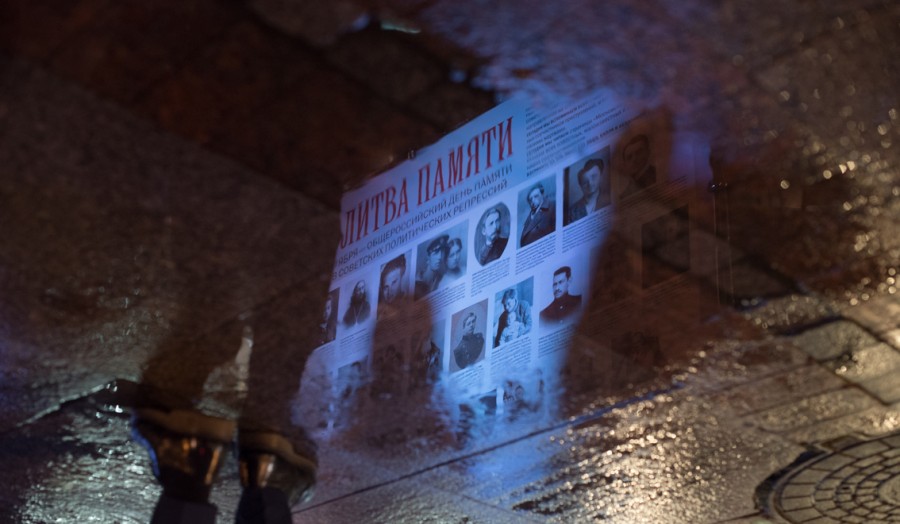
On the 30th of October, our country celebrates a day of memory for all the victims of the repression which lasted for the entire term of Soviet power and never came to an end until the regime itself did. In 2017, this event was at the centre of both federal and regional media, both as a result of the unveiling of the Wall of Sorrows monument, and due to the many memorial events in Moscow (such as the reading of the names of the repressed at Butovsky Firing Range, Solovyetsky Kamenj and Lubyanka Square) and across the whole country (the Prayers of Remembrance Initative).
Prayer in Memory is a non-political initiative “from below”, and this year took place for the eighth time in cities across Russia, as well as in countries of the CIS and abroad. This year, the initiative stretched its reach to 16 regions (last year it was 14 – editor’s note). List of names were commemorated in 21 cities across Russia, including Moscow, St. Petersburg, Archangelsk, Yekaterinburg, Voronezh, Nizhny Novgorod, Ufa, Tomsk, Tver, Samara, Pskov, and others. The victims of Soviet repression were also remembered in Kishinev, Riga and the United States (in California, Nevada, Minnesota and Texas).
As part of the initiative, not only the names of those executed by firing squad or repressed are read out. Prayers are also offered for those innocent people who suffered from the repression, and for organizers and executors of the repression, who themselves were also victims of the terror.
“It seems to me that the reason for the reading of names is, in the first instance, so that any person who isn’t indifferent in their heart, whether highly involved in church life or not, might take at least these several hours to heart, into themselves, into their memories with an effort at suffering alongside those who were repressed, of which there is catastrophically little in our society today, said Film Director Daria Violina, one of the initiators of the prayers in Moscow. When we name not only our own grandfathers and grandmothers, but also people who are entirely unknown to us – a lady who worked on a collective farm, circus cloakroom employee or primary school teacher whose bodies were simply left to rot on some firing range…when we hear their names read out publicly in our city and then we all come together in prayer, it seems to me this is like a security deposit for the continued life of the soul, a work of the soul. And our prayers of remembrance are spiritual work.
“I believe that those who come to prayer during these days…who come to hear prayers read or read out names of their relatives who suffered – these are Russia’s real patriots. Patriotism is to call a spade a spade and to admit the mistakes of one’s country, know its true past and strive not to repeat those mistakes, so that life in the country you love and don’t want to leave will get better…so that events won’t happen which necessitate the reading out of lists of execution victims decades after the fact. For this reason, I believe that Prayers of Remembrance and the Day of Memory for Victims of Political Repression”, in general, is the day of real Russian patriots,” said Violina.
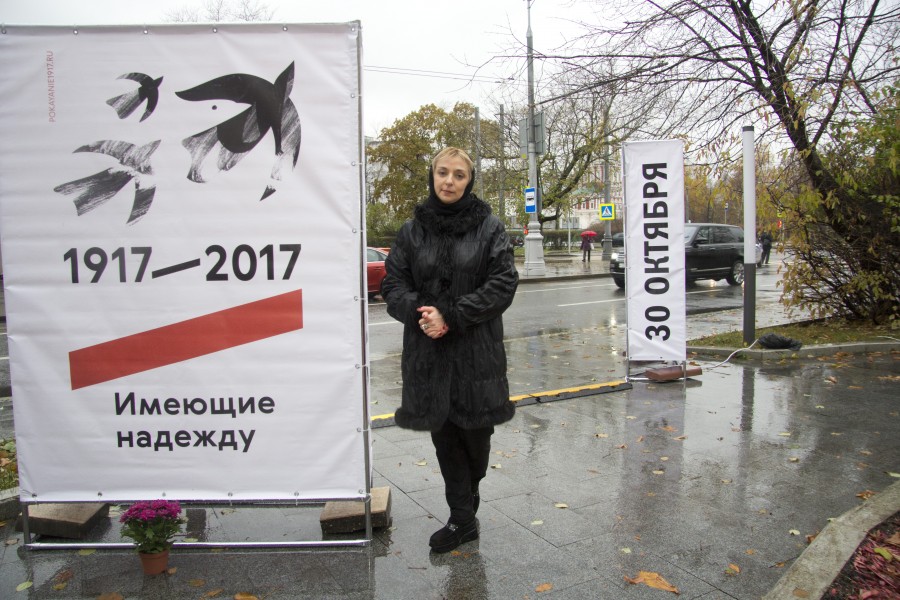
Well known social activists, actors, writers, film directors, historians and scholars took part in the Prayers of Remembrance initiative. These included: scholar Alexey Starobinsky, writer Evgeny Vodolazkin, Director Andrew Zvyagintsev, Actresses Elena Kamburova and Anastasia Melnikova, Actor and television host Andrey Urgant, Actor Igor Vetrov, Deputy Dean of the Philosophy Department of Moscow State University Alexey Kozyrev, and many others. Anyone who wanted to join in with the prayers could, and many passing pedestrians spontaneously joined, suddenly feeling the call of conscience to join in with the reading of names. Many of those who read out lists of names prepared by the organizers also added the names of their own friends and relatives, who suffered in the repression.
We can confidently call Prayers of Remembrance a joint church-society initiative, as NGOs also took part, in some places the club for victims and descendants of victims of the repression, and in some places the Memorial society. One of the Moscow locations was supported by the Historial Museum of the GULAG. In practically all locations where prayers were said, priest of the Orthodox church were also present, and in the majority of cases, litanies in remembrance of those who suffered and were killed in the Soviet repression were also served.
In Yekaterinburg, the litany was led by Metropolitan Kirill of Yekaterinburg and Verkhoturje, who this year took part in the prayerful reading of names personally, for the first time. Speaking at the event, he called all present to recognize the whole depth of the tragic events and their consequences, saying “Here in Russia we experienced a war between the people – between the citizens of a single country, and the consequences of this we can see all around us. Look at the names of streets in every city which bear the names of people who fought against God and hated man. Our streets bear the names of terrorists. Just look at how many churches and monasteries were leveled and you will see the consequences of this insane war that our nation waged against itself a hundred years ago, the wounds of which won’t heal. Here today, just as in cities all across the country, we remember those innocents who died during the years of repression – those who in no way were enemies of the people or of their country, but who were declared as such arbitrarily, and therefore wiped out. And their memory was also wiped out. It is all-important that for us who are now living, this day should become a day of national tragedy and remembrance, and for the recognition of what has happened in our country.”

As a result of the 100th anniversary of the Revolution this year – the beginning of that “war between the people” that continues to wrip our country apart, Prayers of Remembrance is part of the larger Calling our Nation to Repentance initiative. In the opinion of Director Andrey Zvyagintsev, who took part in the Prayers of Remembrance in St. Petersburg, in order for repentance to become really “national”, it is imperative that people be maximally informed about the events of the Soviet repression. “From lack of knowledge, there is a general closed attitude and lack of understanding of what we need to repent for. It seems to me that the problem is that we don’t really have historical memory at all… The awakening of our consciences depends about our knowledge. If I know what I am guilty of and if the scale of the disaster becomes clear and is laid out before me, then my heart is softened and – as someone said – the truth can only enter into a softened heart. The heart is softened by art, or by the sheer scale of the disaster, when you understand what has happened in our country. When you begin to understand what happened to people you are simply horrified, and are, in yourself, drawn into the orbit of these emotions.

At the Prayers of Remembrance in St. Petersburg, Actor and Television Host Andrey Urgant voiced his repentance for the deeds of our forefathers. “My grandfather Nikolay Urgant, my mother’s father, was a soldier and served in the forces of the NKVD. I never met him because he died before I was born, but if there is even a drop of blood on his hands I ask this land to forgive him, if he didn’t manage to ask forgiveness in time himself. But perhaps this isn’t how it is. I hope that this isn’t how it is, but I can’t guarantee it,” he said.
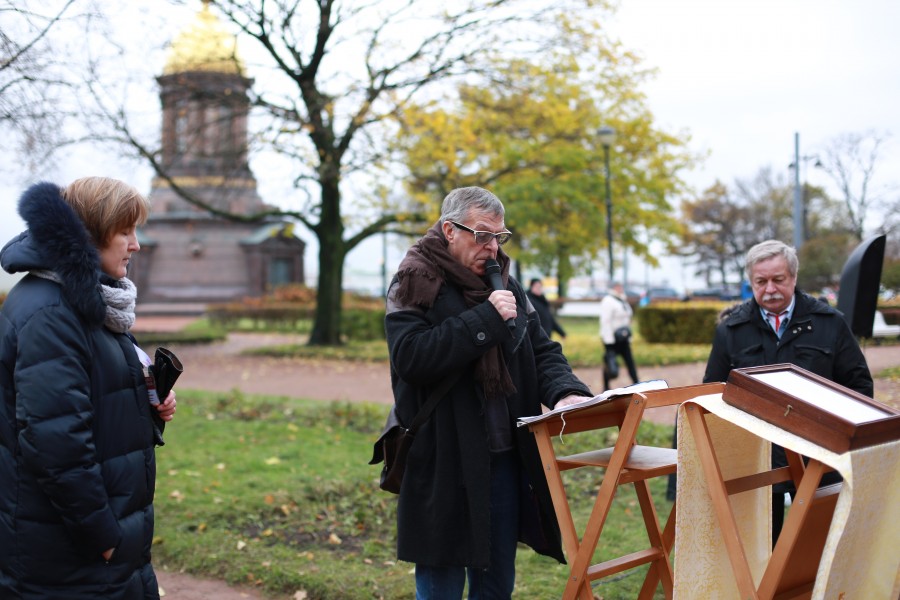
Scholar Alexey Starobinksy took place in the Prayers for Remembrance in Moscow, and told those assembled that for him, personally, the Prayers of Remembrance are “an urgent debt which needs to be paid to those who have died and to those who were repressed in those times.” In his opinion, one of the reasons for the Revolution of 1917, with which this tragic page in our country’s history began, was the atomization of society and the inability of “authoritative, free-thinking people, who themselves had a sense of their own worth” to join together in common action which would have attracted the majority of the people to support them. As Starobinksy said, this atomization – also on the professional level – is palpable in our society even today; in order to overcome this atomization we need to participant in acts like Prayers for Remembrance, where people from the most diverse professions come together. Another possible way to unite, says Starobinsky, is through young people: “young people aren’t yet divided into scholars, writers, etc., yet. There isn’t a “my-shop/your-shop” distinction, since young people haven’t yet decided what they will do in their professional lives. We can achieve unity through the thinking portion of today’s youth. Of course I far from believe that this will be anything like a majority, but at least 20-30% would be a great start. Minorities, by the way, are always more progressive, and 20-30% is a reasonable estimate,” said Starobinsky.

Fr. Georgy Kochetkov, Spiritual Father of the Transfiguration Brotherhood, who was the first to organize these Prayers of Remembrance events, said that the initiative is calling upon everyone in the country to exercise spiritual strength in order that we might overcome the consequences of this Russian Tragedy. “If we want ourselves, our children, and their children to live in this land humanely and according to God’s will – for humanely means “according to God’s will” – then we must do everything necessary not only to make peace with each other, but to actual get rid of all evil, enmity, spite, envy, lies and hypocrisy. Only if we stamp out these passions and overcome our own terrible sin, along with depravity, lack of faith and other sins which are the constant companions of the people in our country today…only having done these things, may we begin to hope that this land will bear our weight, and then we can again begin to make it beautiful, raise it up again, and live in this land to the glory of God!”
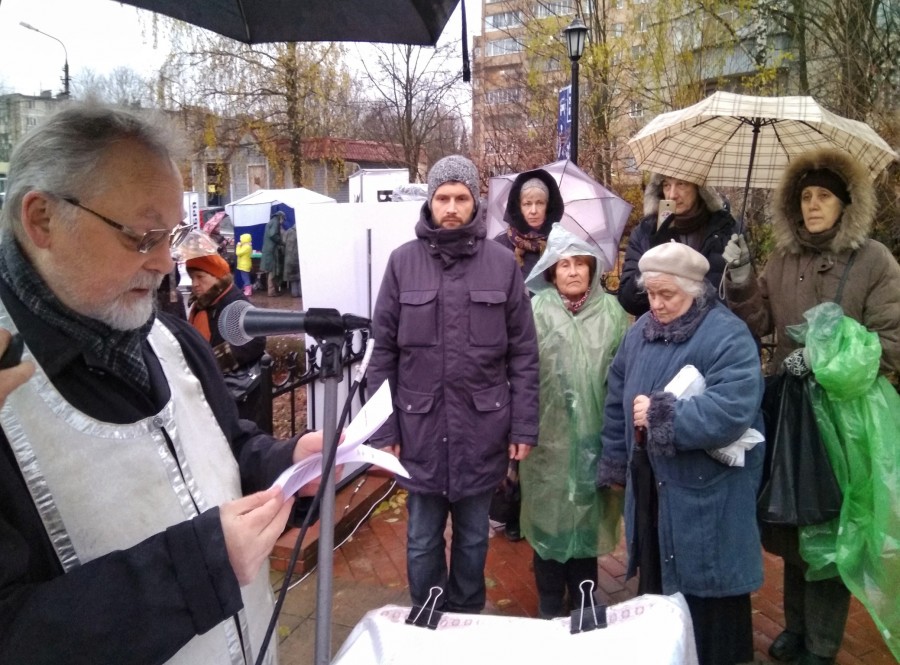
The Prayers of Remembrance initiative started in 2010, with the support of the Synodal Department for Church Relations with Society and the Media of the ROC, the media, and local dioceses.
Darya Makeeva
Photo: Alyona Kaplina, Alexander Volkov, Maksim Sobolev, Diana Rybakova, Igor Liskov, Andrey Podorov, Yuriy Krapivin, Boris Levitsky, Dmitriy Glushenko, Elizaveta Dmitrieva
Additional Information:
The state-wide day of memory for the victims of the Soviet repression was established in Russia in 1991. On this day the whole country remembers those who fell into the mill of mass arrests, exiles and executions. It is difficult to find a single family, in our post-Soviet landscape, that remained untouched by the repression. In 2015, the Government of the RF ratified the State policy of perpetuating the memory of the victims of political repression (Order № 1561-р , dated 15 August, 2015), and the President signed an order for a national collection to be take to gather the funds to erect a Moscow memorial honouring the memory of the victims of depression, the so-called “Wall of Sorrow”, which was unveiled on 30 October 2017. In June 2016, the Synod of the ROC also approved texts of prayers on all innocents killed in the years of repression. These actions were only made possible as a result of many years of effort by people within the church. One aspect of this effort was the Prayers of Remembrance initiative, which has been taking place annually for eight years in cities all across Russia.
